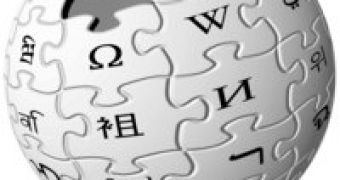Wikipedia has become one of the biggest sites in the world and many users rely on it almost everyday either for school and even research, but also other less educational purposes. It's hard to imagine how the web looked like before Wikipedia, but a new study revealed some troubling statistics showing that the site had mostly stagnated in recent years, with contributions dropping about a third since 2006 when their numbers peaked.
"It's easy to say that Wikipedia will always be here," Ed Chi, a computer scientist at the Palo Alto Research Center, told New Scientist. "This research shows that is not a given." Eight years after it launched, the web resource houses some three million user-contributed articles. But the growth in the number of new articles reached its peak three years ago, when 60,000 new pieces were submitted per month, and the trend has since turned negative, with about 40,000 new articles being added today.
The number of edits to current entries flattened out in 2007, when they reached their maximum, and have since stayed at about 5.5 million per month. The number of active editors also peaked that year and has since stayed at about 750,000 per month.
The research also provided a possible explanation for the waning interest, as regular contributors have become more important both in the number of contributions, but also in exercising their powers. The data showed that "occasional" contributors, those with just one edit per month, had their changes reverted or deleted 25 percent of the time, and the number has risen for the more frequent contributors as well, with those making less than ten changes per month having their edits reverted 15 percent of the time.
However, while the data may be accurate, the interpretation may not be the only one, with others attributing the high number of deleted or reverted edits to the increasing level of spam on the site. The decreasing number of new articles may also be a natural effect of the size of Wikipedia, as new content is becoming increasingly scarce, while also increasing the importance of edits versus new entries.

 14 DAY TRIAL //
14 DAY TRIAL //